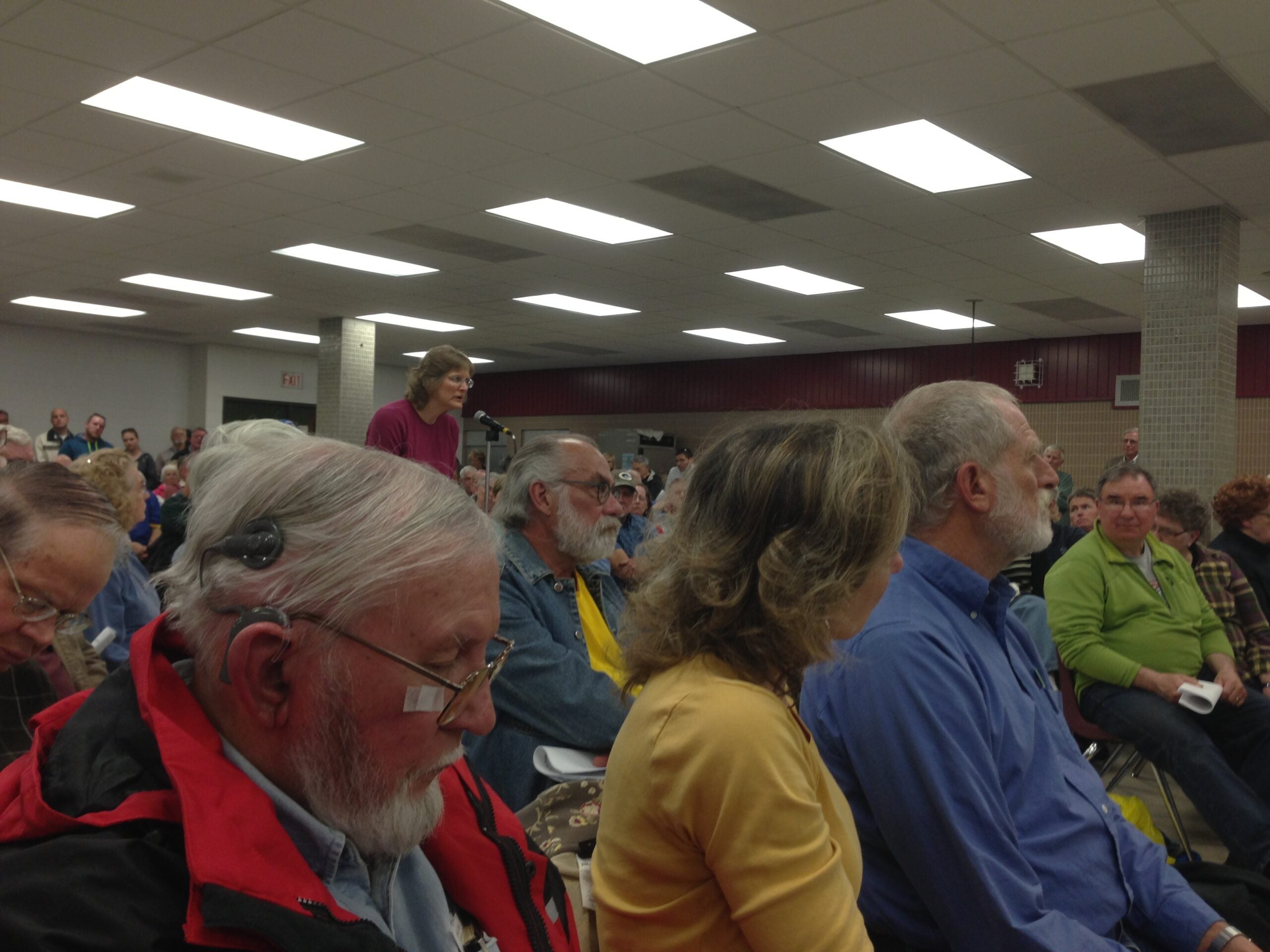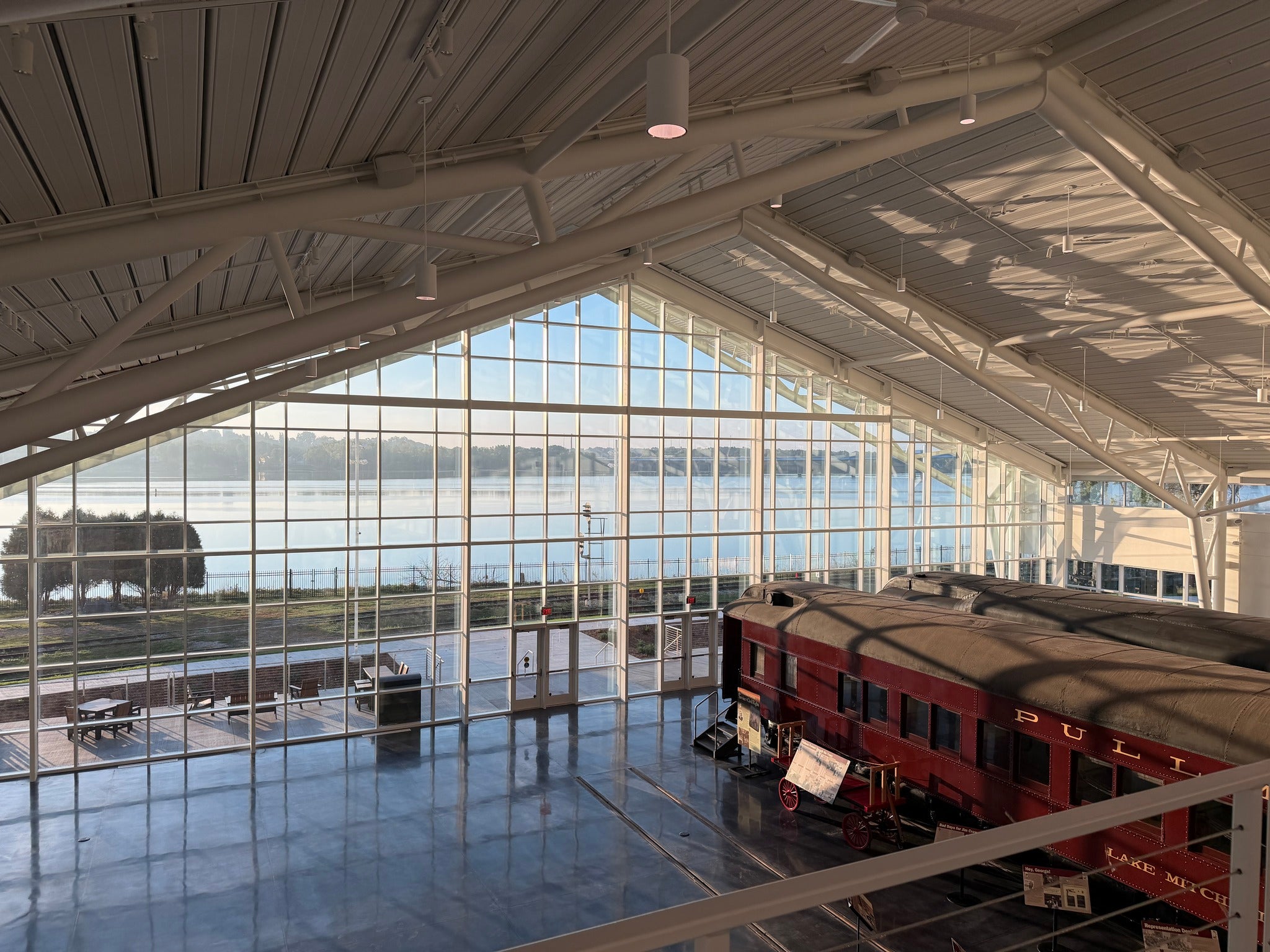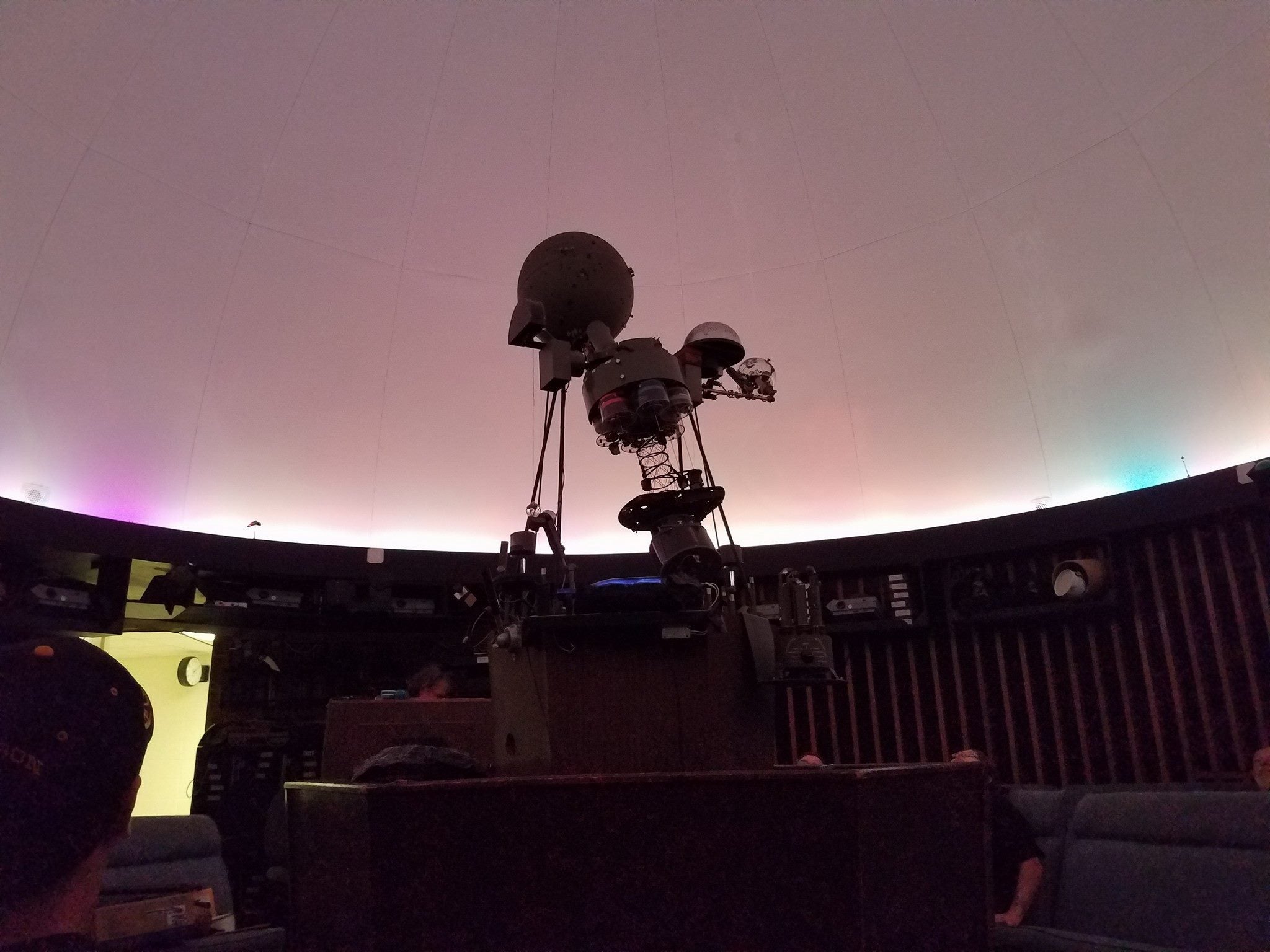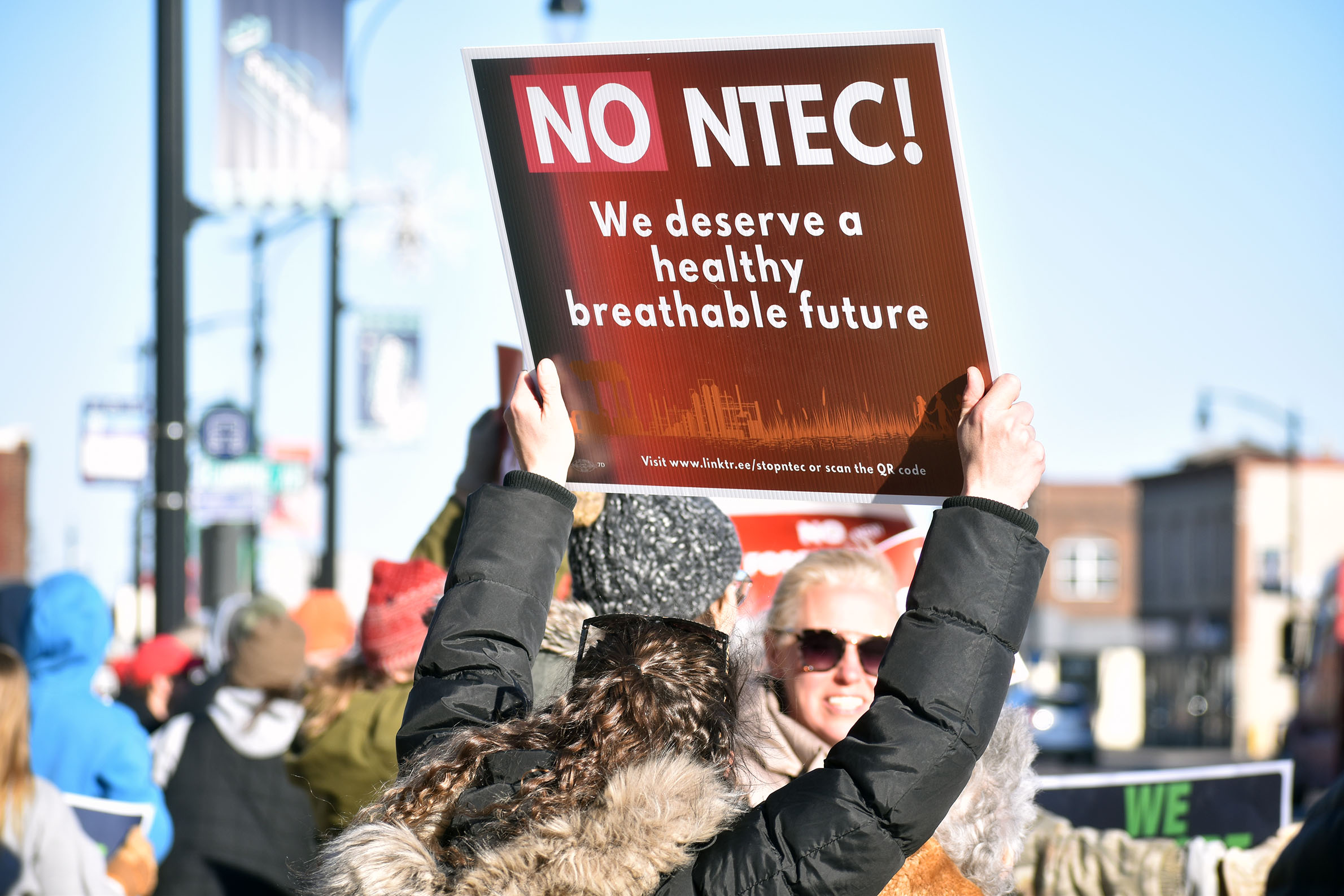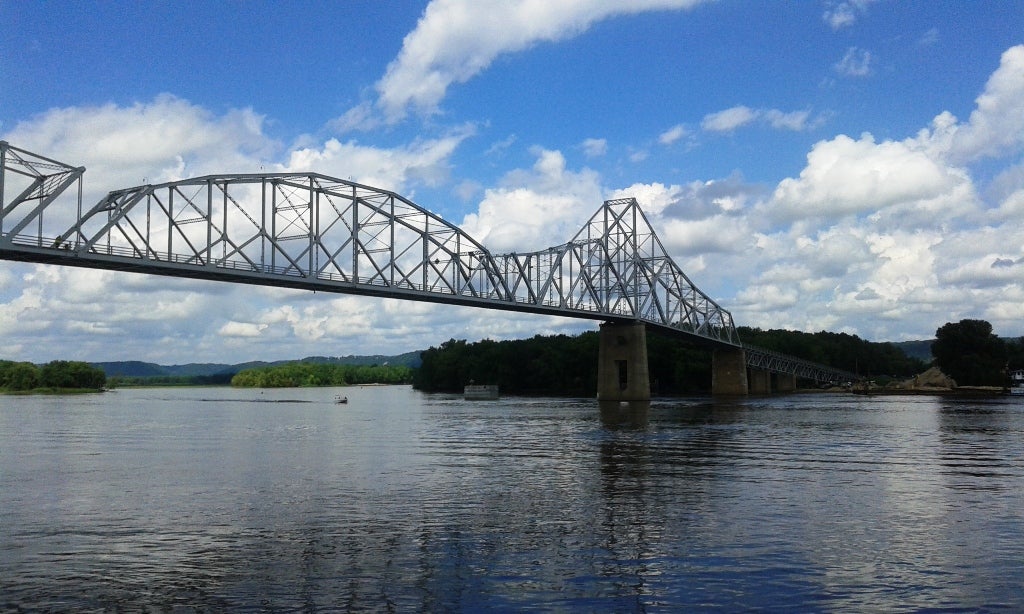More than 300 people packed into a La Crosse Central High School room on Tuesday night for a public meeting about a planned rail track expansion in the city, many of whom expressed concerns over the proposal.
BNSF Railway Company wants to add a second track that would run four miles through La Crosse’s marsh, a golf course, and neighborhoods.
At the meeting sponsored by Citizens Acting for Rail Safety, which opposes the project, people lined up to share their thoughts on the plans. Safety was on the forefront of many people’s minds, as they called for upgrades for outdated tanker cars and reduced train speeds – measures they hope would prevent crude oil spills.
News with a little more humanity
WPR’s “Wisconsin Today” newsletter keeps you connected to the state you love without feeling overwhelmed. No paywall. No agenda. No corporate filter.
La Crosse Mayor Tim Kabat says he wants BNSF to purchase emergency equipment for the regional hazmat team and pay the more-than $1 million that La Crosse taxpayers would owe for the project.
“That is part of the ongoing dialogue we’re having with BNSF,” said Kabat. “We’ll see. Those additional costs, for us, are coming out of nowhere. We didn’t even have those in our capital budget or anything like that.”
People also expressed concerns that the track upgrades would mean more train traffic.
BNSF spokeswoman Amy McBeth says adding a line doesn’t necessarily mean the number of trains will double. She says the purpose of the project is to be more efficient and eliminate a traffic bottleneck.
“But at the same time, we do see independent projections that say overall, you can expect more freight moving by rail,” said McBeth. “So we’re doing what we can now to maintain and expand infrastructure to be able to meet that need for our nation as we continue to grow.”
It’s still unclear whether the city or BNSF owns the land where the expansion will take place. The title that dates back to the mid-1800s is missing.
Wisconsin Public Radio, © Copyright 2025, Board of Regents of the University of Wisconsin System and Wisconsin Educational Communications Board.

